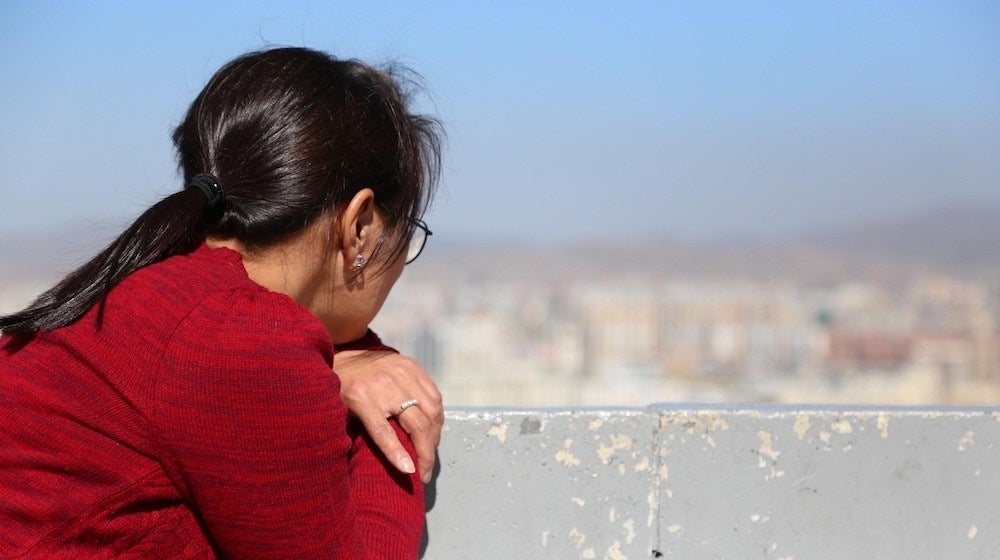Women in Mongolia escape domestic violence during pandemic

ULAANBAATAR, Mongolia – When Dulam* first sought help from a center in northern Mongolia, she was suffering from post-traumatic stress disorder.
For years, she had experienced violence by her husband – as had her four children, aged 2-16. Dulam, now 38, hid the violence from family and friends for fear of bringing shame upon her children. Hope that things would ever get better was all but lost, and she had contemplated suicide.
One winter night, Dulam’s husband returned home in a state of drunken rage and lashed out violently. Fearing for his mother’s life, her 16-year-old son called the country’s ‘102’ helpline. It was the first time someone in Dulam’s household had called the helpline.
With the helpline’s guidance, Dulam and her children escaped to the center. The center is 1 of 17 UNFPA-supported centers in Mongolia that provide accommodations, health care, psychosocial counselling, protection services, and basic legal guidance to women experiencing violence.
A spike in violence
According to a 2017 study, 58% of women in Mongolia have experienced violence at the hands of a partner. The violence can be physical, sexual, emotional, economic, and/or controlling behaviors. In the year prior to the survey, 35% of women experienced at least one of these forms of violence.
The COVID-19 pandemic and lockdowns have made gender inequalities worse. There has been a drastic rise in gender-based violence around the world, yet services for survivors has decreased.
In the first months of 2020, reports of domestic violence in Mongolia rose nearly 50% compared with the same time in 2019. Even more striking, the centers – which UNFPA supports– are serving almost 90% more clients, compared to the same period in 2019.
For example, the center where Dulam and her family received help served nearly twice as many clients in March 2020 than in March 2019. In response to the influx of reports of domestic violence, two centers opened in the Mongolia’s capital, Ulaanbaatar.
Support During COVID-19
UNFPA also distributed guidelines and organized training sessions for center staff to help them adapt during the pandemic. This included adopting alternative methods of service delivery,
“Services for survivors are still available, but many consultations and counselling sessions are now done online or over the telephone,” explained Ms. Tsetsegmaa, a chief social worker and administrator of the local center. “Technology like mobile apps, websites and TV programs also help us continue reaching people in need through remote support.”

Ms. Tsetsegmaa and her colleagues are also hosting virtual meetings to coordinate with health workers and legal advisers. This is a feat in a country where the people follow a nomadic herding lifestyle across remote communities.
“The lessons learned in responding to domestic violence amid the challenge of COVID-19 will be taken forward,” said Kaori Ishikawa, UNFPA’s representative in Mongolia.
A new lease on life
Dulam’s family stayed at the center for a month. They participated in therapy and ‘life-skills’ sessions to help them cope with their trauma and build confidence. The children also received support to continue their studies. In preparation for becoming the family breadwinner, Dulam graduated from the center‘s Empowered Mothers’ program. In the program, survivors share their experiences in support groups and learn skills they can use to earn a living.
Inspired to help other survivors, Dulam now raises awareness about gender-based violence in her community. She is also a nursing assistant in a private hospital and hopes to support even more women experiencing these challenges.
“The center helped rebuild my life,” Dulam said. “I smile a lot more now than before. I have faith in my future, I found a ‘new me,’ and feel like I have been reborn.”
*Name changed to protect the survivor. The survivor provided informed consent for use of her story.
UNFPA.org originally published a version of this article.